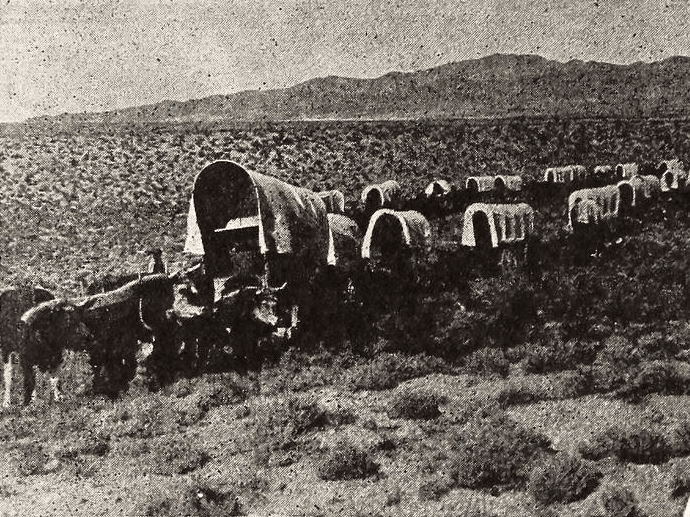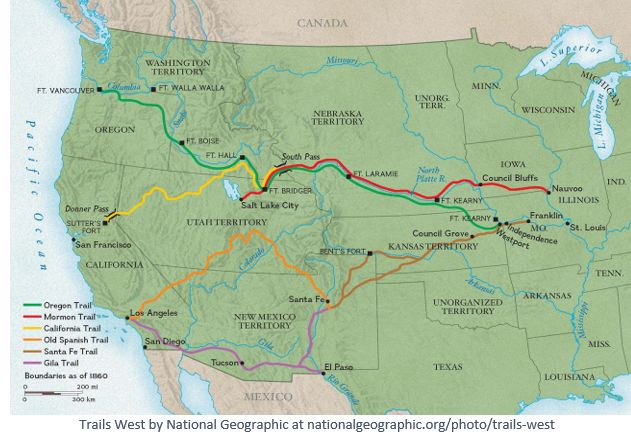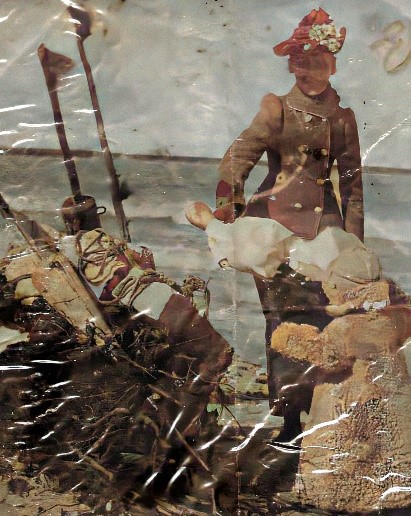Pioneer Day
 24
24Jul

July 24th is a state holiday in Utah celebrating the day Brigham Young and other members of the Church of Jesus Christ of Latter-day Saints arrived in the Salt Lake valley in 1847. Which is otherwise known as Pioneer Day. These early pioneers were escaping religious persecution and, over the years, truly made the desert rejoice and blossom as the rose. (Isaiah 35: 1). The day is commonly called Pioneer Day and has traditionally been celebrated with parades, fireworks, picnics and more. During this pandemic year, however, many of these festivities will not take place. In lieu of the outward celebrations, perhaps this is a good year to have inward celebrations not only of those first and subsequent pioneers who came to Utah, but for all pioneers who braved challenges so that their posterity would have a more abundant life.
UTAH PIONEER DAY
If you have Utah pioneers, perhaps you will enjoy learning more about them. Start with your own family members. Call or visit an older family member who may have stories and even relics handed down from past generations. For online learning, one of the first places to visit is Family Tree at FamilySearch.org where other close or distant relatives may have posted photos and stories of your ancestors. A wonderful website that includes interactive history projects and other pioneer research databases is Early Latter-day Saints – A Mormon Pioneer Database. The mission of this website is “to identify the people, places and events of the early history of The Church of Jesus Christ of Latter-day Saints, helping to preserve for descendants of pioneers and all who share in their legacy, their story of faith and fortitude.” Of course, the Overland Trail Pioneer Database is a must for those searching for pioneers who traveled the “Mormon Trail.” This “Pioneer database project began more than 30 years ago as staff at the Church History Library began to explore ways to help researchers better understand the experience of the Latter-day Saints as they crossed the plains to the Great Basin between the years 1847 and 1868. The database now contains information on more than 61,000 pioneers and 384 wagon and handcart companies.” Perhaps your pioneer ancestor came from another country. If so, you may want to explore the website Saints By Sea which “offers inspiring accounts” of the journeys of these early Latter-day Saint converts who heeded the call to come to Zion. And, finally, two other web pages you may want to refer to are the Daughters of the Utah Pioneers website and the FamilySearch.org Wiki page titled Mormon Trail.
WESTWARD MIGRATION PIONEERS
Thousands, even hundreds of thousands of Americans and immigrants traveled westward during the migration of the mid-1800s. They traveled west for the same reason their forebears left secure homes or countries--the desire for affordable fertile land where they could create a good life for their families and posterity. National Geographic has created a map showing the various trails used by these pioneers.

The Oregon-California Trails Association has a marvelous educational website with links to many other trails such as the Cherokee, Southern, Missouri and Kansas trails. It also includes a link to “Genealogy and Paper Trail” which is a “searchable database of remarkable journeys, with names, places and a survey of the text. This database includes a list of libraries where the original historic documents may be found.”
MODERN DAY PIONEERS
One of the definitions of pioneer is “to open or prepare for others to follow” (Merriam-Webster transitive verb). In this sense all Americans have forebears who have pioneered or prepared the  way for others to follow. All have an ancestor who left home, either by will or by force, and came to an unknown land. Even Native Americans were not always able to stay in the same place, so also settled new land and prepared it for others to follow. So, all Americans have forebears who pioneered. It might be interesting to learn about their adventures. Some places to search for information follow:
way for others to follow. All have an ancestor who left home, either by will or by force, and came to an unknown land. Even Native Americans were not always able to stay in the same place, so also settled new land and prepared it for others to follow. So, all Americans have forebears who pioneered. It might be interesting to learn about their adventures. Some places to search for information follow:
- An all-encompassing inventory of passenger lists can be found at Stephen Morse’s website stevenmorse.org
- New York, Passenger and Crew Lists (including Castle Garden and Ellis Island), 1820-1957 ($)
- California, Passenger and Crew Lists, 1882-1959 ($)
- Index to Passenger Arrivals, Atlantic and Gulf Ports, 1820-1874
- Hawaii, Passenger Lists, 1843-1898 ($)
- Border Crossings: From Mexico to US, 1895-1964 on Ancestry.com ($) or United States Border Crossings from Mexico to United States, 1903-1957. If you are lucky, you may find one with a photo included in the document.
- United States Border Crossings from Canada to United States, 1895-1956
- United States Italians to America Index, 1855-1900
- United States Germans to America Index, 1850-1897
- United States Russians to America Index, 1834-1897 The website American Historical Society of Germans from Russia contains a wealth of information regarding these immigrants.
- United States, Native American, Census Rolls, 1885-1940
- United States Index to Alien Case Files, 1940-2003 Under the Alien Registration Act of 1940, immigrants in the United States were required to register and be fingerprinted. It is believed this was partially brought about because of World War II.
May this 24th of July be a day for all to celebrate their pioneers, whether they crossed the plains, a mountain, the ocean, or a border. We can all be grateful for their bravery and sacrifice so that we can have a better life.
Diane
- Introductory photo in public domain Paramount Pictures, via Wikimedia Commons
Do you have any other questions about the history of Pioneer Day? Let us know in a comment below!
